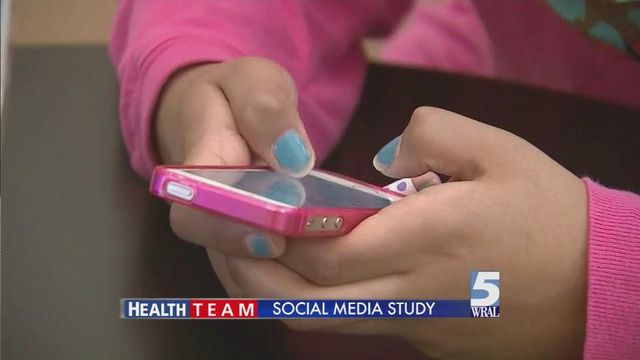Doctor: Social media skimps on real interaction
Many people spend hours texting, chatting and sharing little pieces of their lives with friends on social media. But is "social" media really social when it's just a screen and not face-to-face? In many ways social media has reduced or even replaced times that people spent visiting friends.
Posted — UpdatedMany people spend hours texting, chatting and sharing little pieces of their lives with friends on social media.
But is "social" media really social when it's just a screen and not face-to-face? In many ways social media has reduced or even replaced times that people spent visiting friends.
Social media is a fun distraction, but according psychologist Dr. Joseph Rock with the Cleveland Clinic, it's not as social as you might think—it may even pose a problem for many people.
"You do get very self-absorbed," Rock said. "That's a problem, I think, and I think the other problem is you realize you're making yourself vulnerable to a whole bunch of other people who really don't even know you and certainly don't have your best interest at heart necessarily."
Rock says that because social media is still relatively new compared to other forms of communication, our brains are still getting used to the idea. He said it's easy for folks to over-share information that they would not feel comfortable sharing with such a large audience if it were done face to face.
It's also easy for people to lose sight of the fact that their responses might not be limited to one-on-one interactions but are seen by many people.
Sharing information and opinions opens the door to negative responses. While some people have thick skin, others are more prone to responding with anger or having their feelings hurt. Rock said it can be a problem fro people who already struggle with social anxiety.
"It's virtual fantasy, I mean, you know, nobody, you don't know if these people are telling you the truth," Rock said. "You don't know if they are who they say they are, if they're doing what they say they're doing. But it feels the same to us, as if you and I are having a face-to-face discussion and you're insulting me."
Many users have noticed that people often do behave differently when they are on social media compared to when they are face to face. When it is just the person and their computer or their phone, they are much less inhibited.
The problem is it's much easier to insult someone who's not sitting in front of you, but it still hurts as badly if you're receiving it.
Some users are also concerned about mental or developmental concerns, especially for children and teens if social media has mostly replaced face-to-face interactions with friends. The key is to understand that social media is not the same as face to face even if it's Facetime on a phone or applications like Skype.
These are useful tools for communicating with others when you can't meet face to face, but it's not a replacement for a physical connection with friends.
Rock says people need that human connection for their mental wellbeing.
• Credits
Copyright 2024 by Capitol Broadcasting Company. All rights reserved. This material may not be published, broadcast, rewritten or redistributed.




